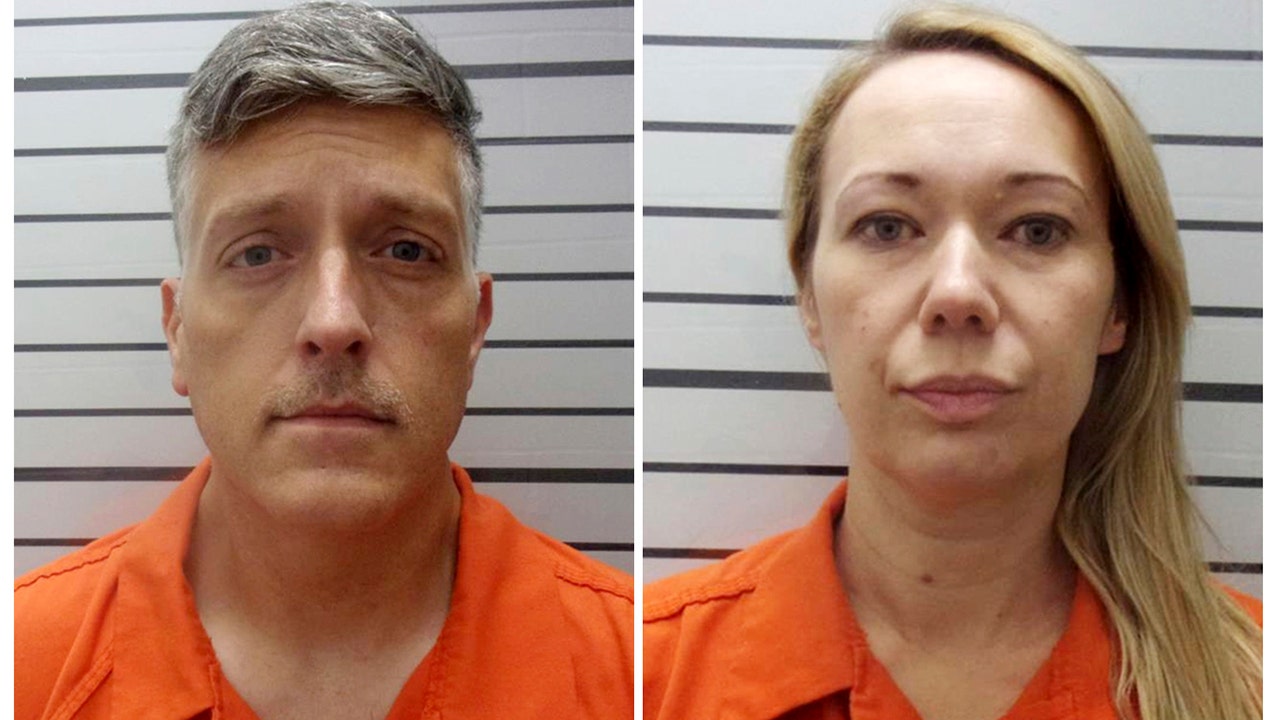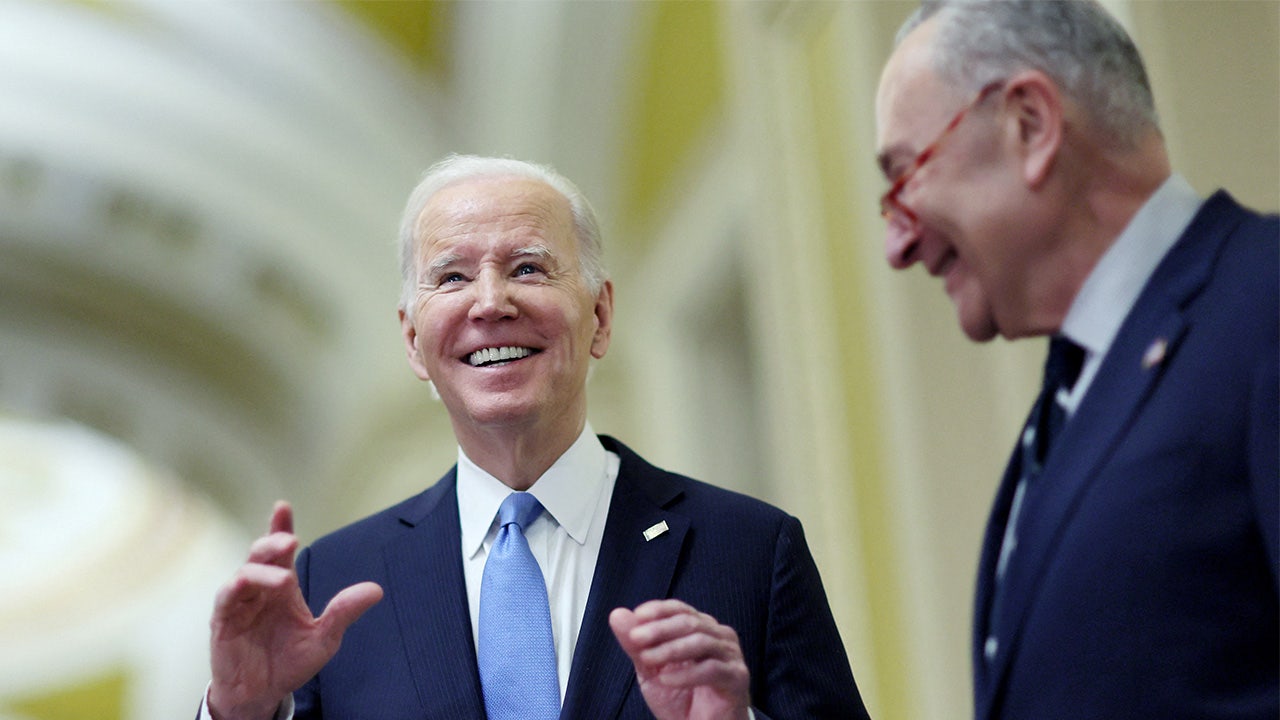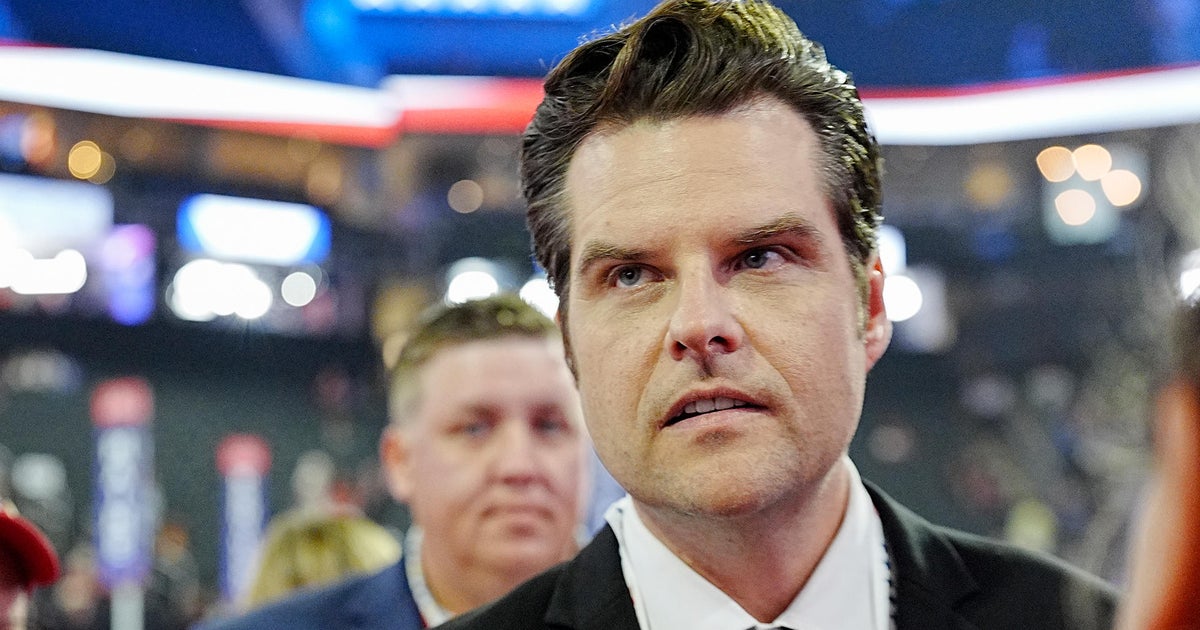Reporting by Shrivathsa Sridhar in Bengaluru
World
Finland stun US to reach Davis Cup quarters, Australia and Canada through
/cloudfront-us-east-2.images.arcpublishing.com/reuters/2DF2OBNMQ5JSFDJOHPLCH62Y4U.jpg)
[1/2]Tennis – Davis Cup – Finals – Serbia v Czech Republic – Pabellon Fuente de San Luis, Valencia, Spain – September 16, 2023 Serbia’s Novak Djokovic and Nikola Cacic in action during their doubles match against Czech Republic’s Adam Pavlasek and Tomas Machac REUTERS/Pablo Morano Acquire Licensing Rights
SPLIT, Croatia, Sept 16 (Reuters) – Underdogs Finland stunned 32-times champions the United States on Saturday to seal their place in the Davis Cup quarter-finals for the first time, while the Czech Republic, Canada and Australia all advanced.
Otto Virtanen got Finland off to a solid start by outlasting Mackenzie McDonald 7-6(5) 1-6 7-6(7) before Emil Ruusuvuori sent Finland into the last eight from Group D with a hard-fought 7-6(1) 6-4 win over Tommy Paul in Split.
“It means a lot for the whole country and for tennis in Finland. It’s a huge thing and once again we proved how strong this team is,” Ruusuvuori said. “We’re going to Malaga.
“I skipped the U.S. Open as I was sick and didn’t come here in really good shape. I struggled today physically and it was a bit tough in the beginning. But you just have to keep fighting. I was able to find a way in two long sets.”
In Group C, already qualified Serbia found themselves down 2-0 against the Czechs after world number one Novak Djokovic had opted to skip the singles matches having guided them to victory over Spain a day earlier.
Dusan Lajovic crashed to a 6-3 6-2 defeat by Jakub Mensik to leave Serbia in a spot of bother in Valencia.
Laslo Djere, who has been in good form during the Finals group stage, overcame a back problem and dug deep to save four matchpoints in his clash with Jiri Lehecka but lost 7-6(7) 7-5 as the Czechs prevailed.
“I’m pleased with the win, it’s as simple as that. Laslo is a great guy and even better player so for me to play against him on this court was such a big challenge,” Lehecka said after ensuring top spot in the group for his nation.
“He plays some incredible shots and he never gives up. Even when I was up 4-1 in the second set, he was still there waiting for his moments. I must have added something to my level and it went well.”
The teams will next head to Malaga for the knockout rounds that take place from Nov. 21-26.
They will be joined by Australia, after last year’s runners-up secured a 3-0 win over Switzerland in Group B in Manchester.
Thanasi Kokkinakis beat Dominic Stricker 6-3 7-5 and Alex de Minaur downed Marc-Andrea Huesler 6-4 6-3 before the pair of Max Purcell and Matthew Ebden added some gloss to the victory with a dominant display in the doubles rubber.
“The first two boys did so good to put us up 2-0 and made us feel extra confident by taking the pressure off. We knew that we still had to win this match,” Ebden said after the duo scored a 6-2 6-4 win over Huesler and Stricker.
“Huge team effort all week from everyone.”
Canada’s world number 200 Alexis Galarneau continued his superb run this week as he got past Chile’s Alejandro Tabilo 6-3 7-6(5), with the match win ensuring that the defending champions will reach the next round of the competition.
Nicolas Jarry levelled the Group A tie in Bologna by beating Gabriel Diallo 6-4 6-4 before the deciding doubles rubber.
Our Standards: The Thomson Reuters Trust Principles.

World
Jon Hamm’s Your Friends & Neighbors Renewed at Apple TV+ Ahead of Series Premiere — Get Release Date

ad
World
Israel keeping its ‘eyes open’ for Iranian attacks during Trump transition period, ambassador says
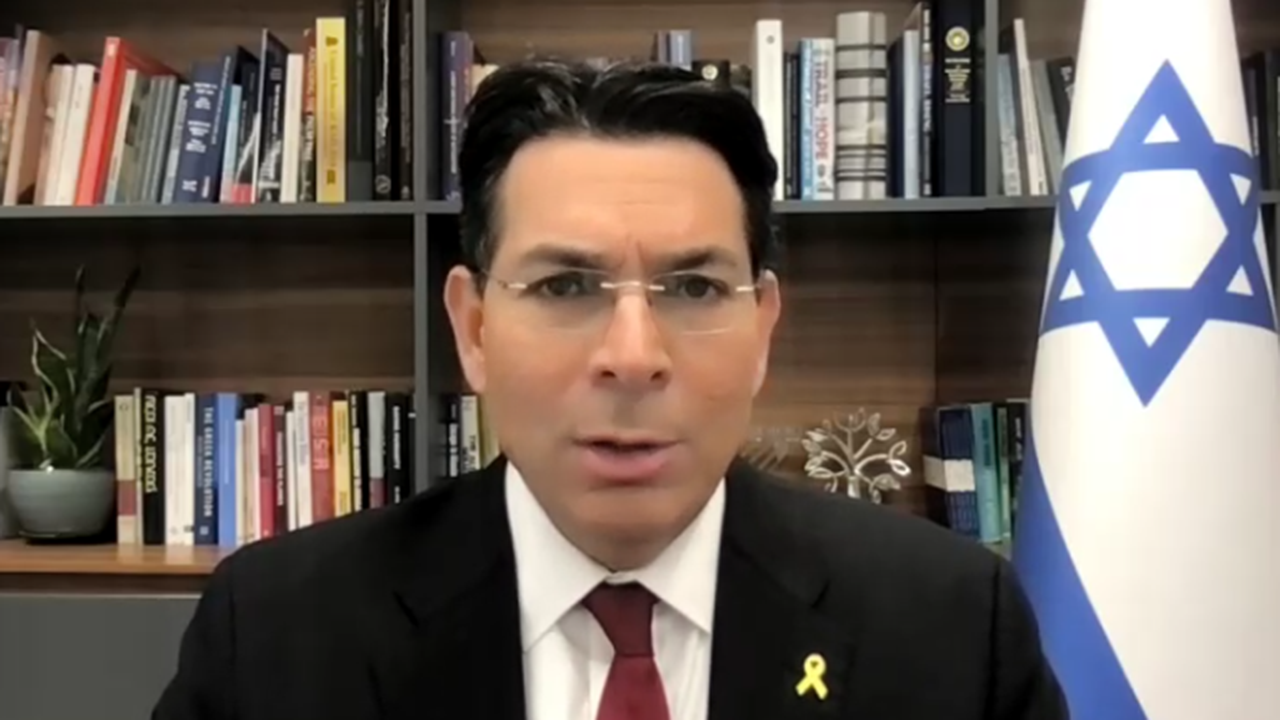
Israel’s U.N. Ambassador Danny Danon tells Fox News Digital that his country is keeping its “eyes open” for any potential aggression from Iran during the Trump transition period, adding it would be a “mistake” for the Islamic Republic to carry out an attack.
The comments come after Iranian Foreign Minister Abbas Araghchi vowed earlier this week that Iran would retaliate against Israel for the strategic airstrikes it carried out against Tehran on Oct. 26. Araghchi was quoted in Iranian media saying “we have not given up our right to react, and we will react in our time and in the way we see fit.”
“I would advise him not to challenge us. We have already shown our capabilities. We have proved that they are vulnerable. We can actually target any location in Iran. They know that,” Danon told Fox News Digital.
“So I would advise them not to make that mistake. If they think that now, because of the transition period, they can take advantage of it, they are wrong,” he added. “We are keeping our eyes open and we are ready for all scenarios.”
ICC REJECTS ISRAELI APPEALS, ISSUES ARREST WARRANTS FOR BENJAMIN NETANYAHU, YOAV GALLANT
Israel’s U.N. Ambassador Danny Danon tells Fox News Digital that his country is “ready for all scenarios” coming from Iran during the Trump transition period. (Fox News)
Danon says he believes one of the most important challenges for the incoming Trump administration will be the way the U.S. deals with Iran.
“Regarding the new administration, I think the most important challenge will be the way you challenge Iran, the aggression, the threat of the Iranian regime. I believe that the U.S. will have to go back to a leading position on this issue,” he told Fox News Digital.
“We are fighting the same enemies, the enemies of the United States of America. When you look at the Iranians, the Houthis, Hezbollah, Hamas, all those bad actors that are coming against Israel… that is the enemy of the United States. So I think every American should support us and understand what we are doing now,” Danon also said.
IRAN HIDING MISSILE, DRONE PROGRAMS UNDER GUISE OF COMMERCIAL FRONT TO EVADE SANCTIONS
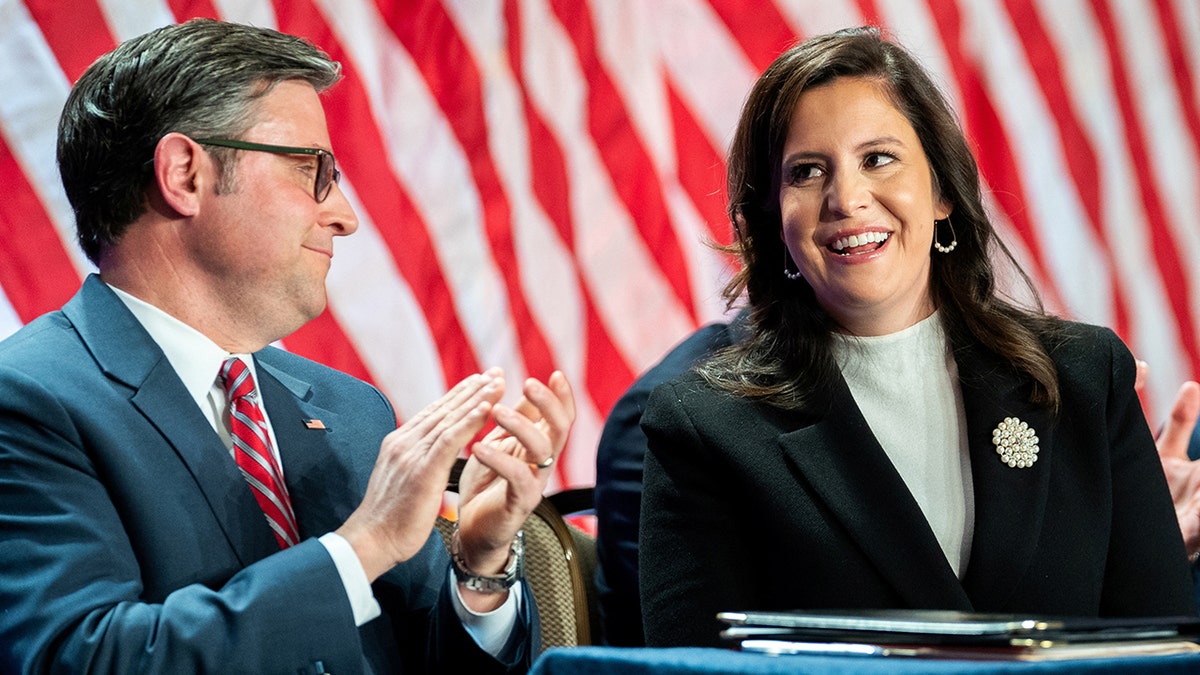
Rep. Elise Stefanik, R-N.Y., is acknowledged by President-elect Donald Trump alongside Speaker of the House Mike Johnson during a meeting with House Republicans at the Hyatt Regency hotel in Washington, D.C., on Nov. 13, 2024. Stefanik has been chosen by President-elect Donald Trump as the next U.S. ambassador to the United Nations. (Allison Robbert/Pool via REUTERS)
Danon spoke as the U.S. vetoed a draft resolution against Israel at the U.N. Security Council on Wednesday.
The resolution, which was overseen by Algeria, sought an “immediate, unconditional and permanent cease-fire” to be imposed on Israel. The resolution did not guarantee the release of the hostages still being held by Hamas within Gaza.
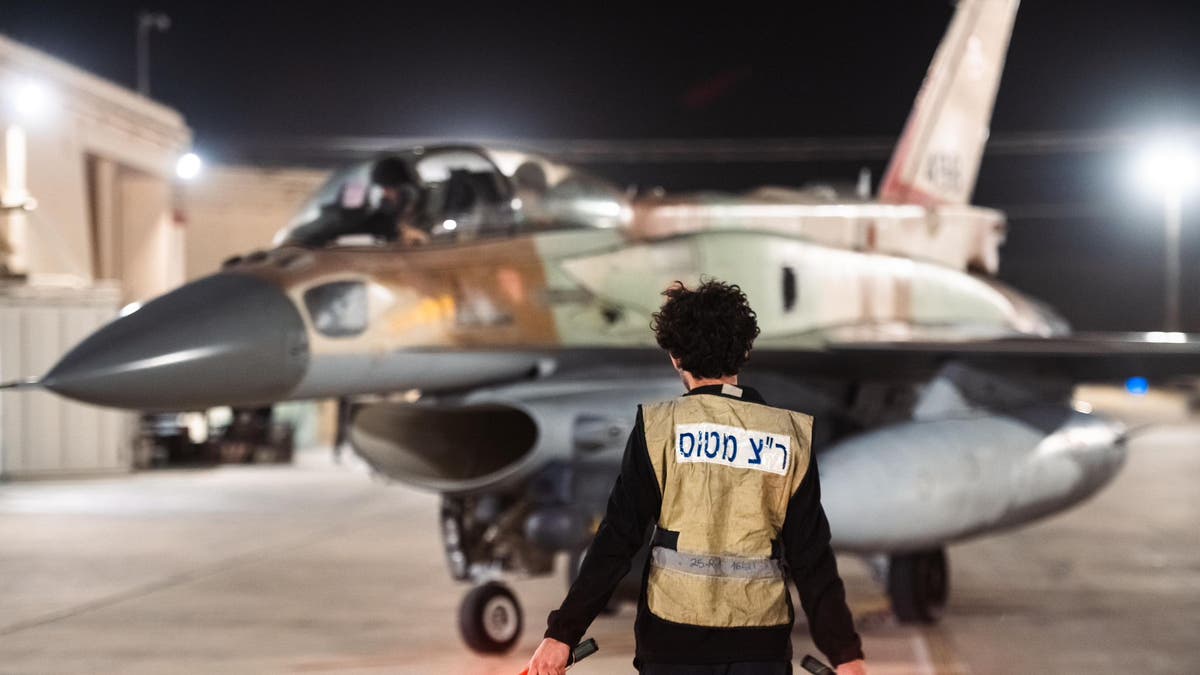
Israeli Air Force planes departing for the strikes in Iran on Oct. 26. (IDF Spokesman’s Unit)
“It was a shameful resolution because… it didn’t have the linkage between the cease-fire and the call [for] the release of the hostages. And I want to thank the United States for taking a strong position and vetoing this resolution,” Danon said. “I think it sent a very clear message that the U.S. stands with its strongest ally with Israel. And, you know, it was shameful, too, to hear the voices of so many ambassadors speaking about a cease-fire but abandoning the 101 hostages. We will not forget them. We will never abandon them. We will continue to fight until we bring all of them back home.”
Fox News’ Benjamin Weinthal contributed to this report.
World
Fact-check: What do we know about Russia’s nuclear arsenal?

Moscow has lowered the bar for using nuclear weapons and fired a missile capable of carrying a nuclear warhead into Ukraine, heightening tensions with the West.
Russia’s nuclear arsenal is under fresh scrutiny after an intermediate-range ballistic missile capable of carrying an atomic warhead was fired into Ukrainian territory.
President Vladimir Putin says the unprecedented attack using the so-called “Oreshnik” missile is a direct response to Ukraine’s use of US and UK-made missiles to strike targets deep in Russian territory.
He has also warned that the military facilities of Western countries allowing Ukraine to use their weapons to strike Russia could become targets.
The escalation comes days after the Russian President approved small but significant changes to his country’s nuclear doctrine, which would allow a nuclear response to a conventional, non-nuclear attack on Russian territory.
While Western officials, including US defence secretary Lloyd Austin, have dismissed the notion that Moscow’s use of nuclear weapons is imminent, experts warn that recent developments could increase the possibility of nuclear weapons use.
Here’s what we know about Russia’s inventory of atomic weapons.
How big is Russia’s nuclear arsenal?
Russia holds more nuclear warheads than any other nation at an estimated 5,580, which amounts to 47% of global stockpiles, according to data from the Federation of American Scientists (FAS).
But only an estimated 1,710 of those weapons are deployed, a fraction more than the 1,670 deployed by the US.
Both nations have the necessary nuclear might to destroy each other several times over, and considerably more atomic warheads than the world’s seven other nuclear nations: China, France, India, Israel, North Korea, Pakistan and the United Kingdom.
Of Moscow’s deployed weapons, an estimated 870 are on land-based ballistic missiles, 640 on submarine-launched ballistic missiles, and potentially 200 at heavy bomber bases.
According to FAS, there are no signs Russia is significantly scaling up its nuclear arsenal, but the federation does warn of a potential surge in the future as the country replaces single-warhead missiles with those capable of carrying multiple warheads.
Russia is also steadily modernising its nuclear arsenal.
What could trigger a Russian nuclear response?
Moscow’s previous 2020 doctrine stated that its nuclear weapons could be used in response to an attack using nuclear or other weapons of mass destruction “when the very existence of the state is put under threat.”
Now, the conditions under which a nuclear response could be launched have changed in three crucial ways:
- Russia will consider using nuclear weapons in the case of a strike on its territory using conventional weapons, such as cruise missiles, drones and tactical aircraft.
- It could launch a nuclear attack in response to an aggression by a non-nuclear state acting “with the participation or support of a nuclear state”, as is the case for Ukraine.
- Moscow will also apply the same conditions to an attack on Belarus’ territory, in agreement with President Lukashenko.
Is there a rising nuclear threat?
The size of the world’s nuclear stockpiles has rapidly decreased amid the post-Cold War détente. The Soviet Union had some 40,000 warheads, and the US around 30,000, when stockpiles peaked during the 1960s and 70s.
But FAS warns that while the overall number is still in decline, operational warheads are on the rise once again. More countries are also upgrading their missiles to deploy multiple warheads.
“In nearly all of the nuclear-armed states there are either plans or a significant push to increase nuclear forces,” Hans M. Kristensen, Director of the Nuclear Information Project at the Federation of American Scientists (FAS), said in June this year.
Is the West reacting?
When Putin approved the updated nuclear protocol last week, many Western leaders dismissed it as sabre rattling.
German Foreign Minister Annalena Baerbock said Germany and its partners would “not be intimidated” and accused Putin of “playing with our fear.”
But since Russia used a hypersonic ballistic missile capable of carrying a nuclear warhead in an attack on Dnipro, European leaders have raised the alarm.
“The last few dozen hours have shown that the threat is serious and real when it comes to global conflict,” Polish Prime Minister Donald Tusk said on Friday.
According to Dutch media reports, NATO’s secretary-general Mark Rutte is in Florida to urgently meet President-elect Donald Trump, potentially to discuss the recent escalation.
NATO and Ukraine will hold an extraordinary meeting in Brussels next Tuesday to discuss the situation and the possible allied reaction, according to Euronews sources.
-
Business1 week ago
Column: OpenAI just scored a huge victory in a copyright case … or did it?
-

 Health1 week ago
Health1 week agoBird flu leaves teen in critical condition after country's first reported case
-

 Business6 days ago
Business6 days agoColumn: Molly White's message for journalists going freelance — be ready for the pitfalls
-
World1 week ago
Sarah Palin, NY Times Have Explored Settlement, as Judge Sets Defamation Retrial
-

 Science3 days ago
Science3 days agoTrump nominates Dr. Oz to head Medicare and Medicaid and help take on 'illness industrial complex'
-

 Politics5 days ago
Politics5 days agoTrump taps FCC member Brendan Carr to lead agency: 'Warrior for Free Speech'
-
/cdn.vox-cdn.com/uploads/chorus_asset/file/25739950/247386_Elon_Musk_Open_AI_CVirginia.jpg)
/cdn.vox-cdn.com/uploads/chorus_asset/file/25739950/247386_Elon_Musk_Open_AI_CVirginia.jpg) Technology4 days ago
Technology4 days agoInside Elon Musk’s messy breakup with OpenAI
-

 Lifestyle5 days ago
Lifestyle5 days agoSome in the U.S. farm industry are alarmed by Trump's embrace of RFK Jr. and tariffs






